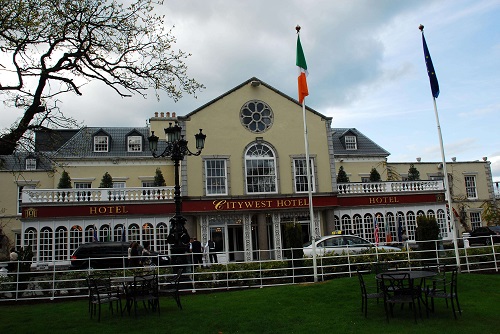
The United Kingdom’s Brexit negotiations with the European Union are stumbling along, with one principal barrier being the question of the status of the Irish border, and that is having a profound effect on hoteliers on both sides of the border.
According to hoteliers, the largest problem stemming from arguments over “hard” or “soft” borders, customs unions, trade deals and potentially troublesome political precedents is the uncertainty it is generating.
Adam Coburn, GM of the 58-room Four Seasons Hotel, Spa & Leisure Club, in Carlingford, Ireland, six miles southeast of the border, said his hotel is putting renovations on hold until the present landscape settles down.
Coburn said 2018 might be a difficult year for rural Irish hotels, with challenges including an increase in the price of food and beverage and other imported goods, guests’ reduced disposable income and, again, market uncertainty.
His property has an emphasis on weddings, but with the U.K. pound sterling dropping 20% in value since British voters voted to leave the EU, Coburn said his sales and marketing team is working twice as hard to offset that.
“We’re looking at other lines of business,” Coburn said. “On the wider scale, we’re lucky as wedding sales for 2019 and 2020 from Northern Ireland are increasing, but this year we’ve suffered, down 32 weddings.”
Tom Barrett, director of hotels and leisure at business advisory Savills Ireland, said pound devaluation created Irish demand to travel north to Northern Ireland.
“People going north to Belfast, yes, that is financially more attractive, but the number of U.K. tourists into Ireland has declined this year,” Barrett said. “Pricing reflects more than anything is the tipping point.
“Now, effectively, there is no border. Staff and labor, food and goods distribution all is now seamless, but a hard border for sure will create difficulties getting things in and out over borders.”
Both Barrett and Coburn said things would become calmer, although politics can change rapidly. On 8 December, the U.K. government announced it reached an agreement with the EU concerning the Irish border’s “soft” status, but critics say the “agreement” has not been categorically spelled out and it produces a precedent—why cannot Scotland and, even, London enjoy the same status—and political uncertainty.
According to the BBC, the “agreement” is a “gentleman’s agreement between (U.K. Brexit secre-tary) David Davis and Michel Barnier, the EU’s chief negotiator on Brexit.
The BBC reported that on 10 December, Davis said, “Guarantees on the Northern Ireland border were not legally binding unless the two sides reached a final deal.”
That will not be anytime soon, Barrett said.
“Delays in crossing the border is something that must be avoided,” he said. “No one likes delays, and that would hit goods probably more than people.”










Service Hotline
Work Time:Mon-Fri 9:00-18:00
UTC+8

Sinoexpo Digital Platform
Copyright 2006-2024 Shanghai Sinoexpo Informa Markets International Exhibition Co., Ltd. All rights reserved
沪ICP备05034851号-77
 沪公网安备 31010402000543号
沪公网安备 31010402000543号